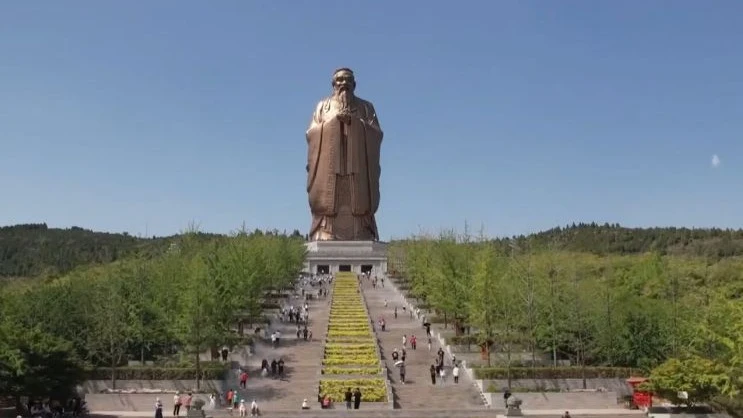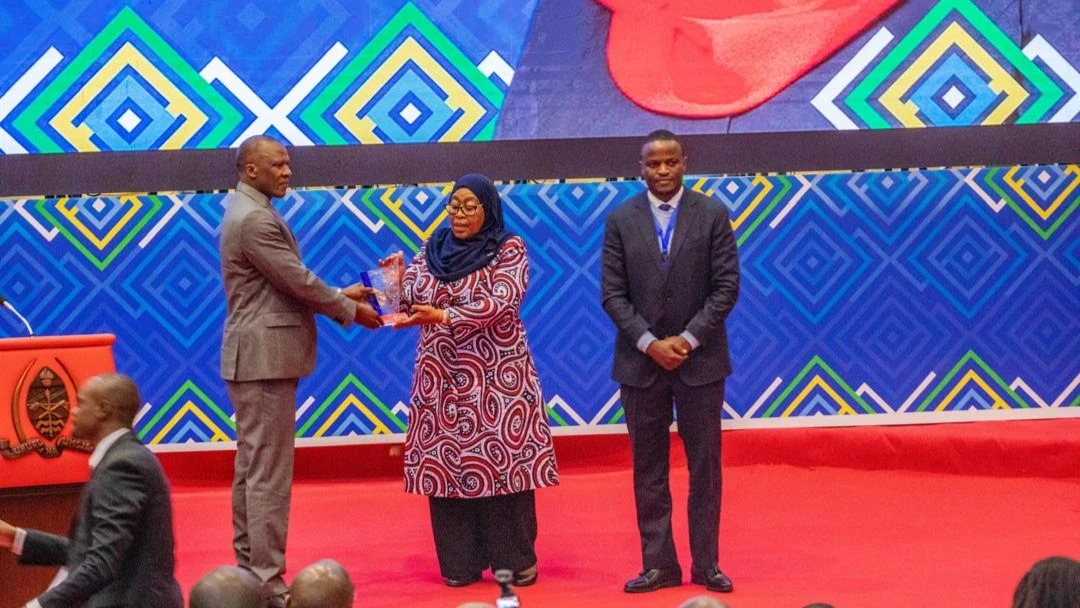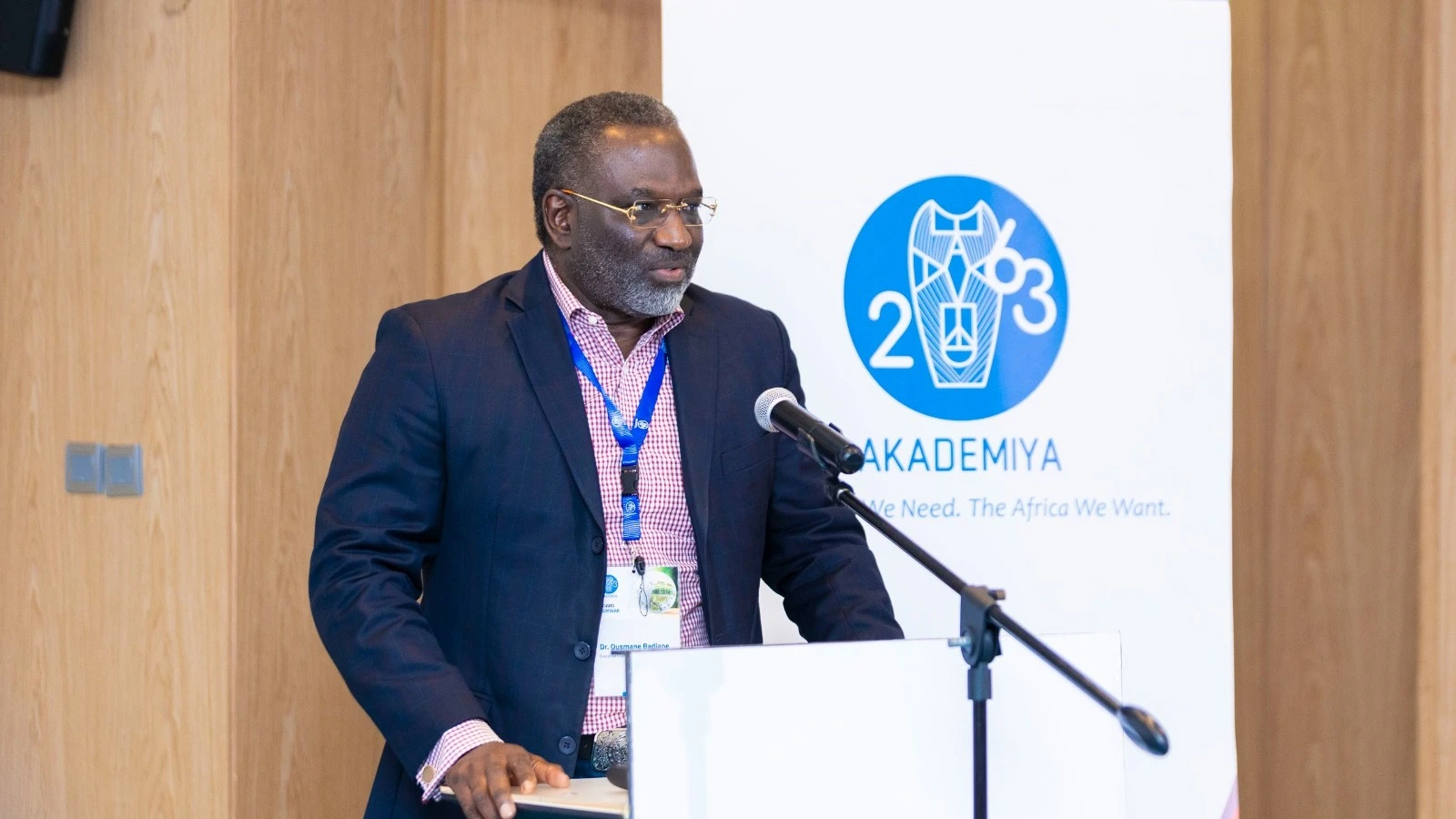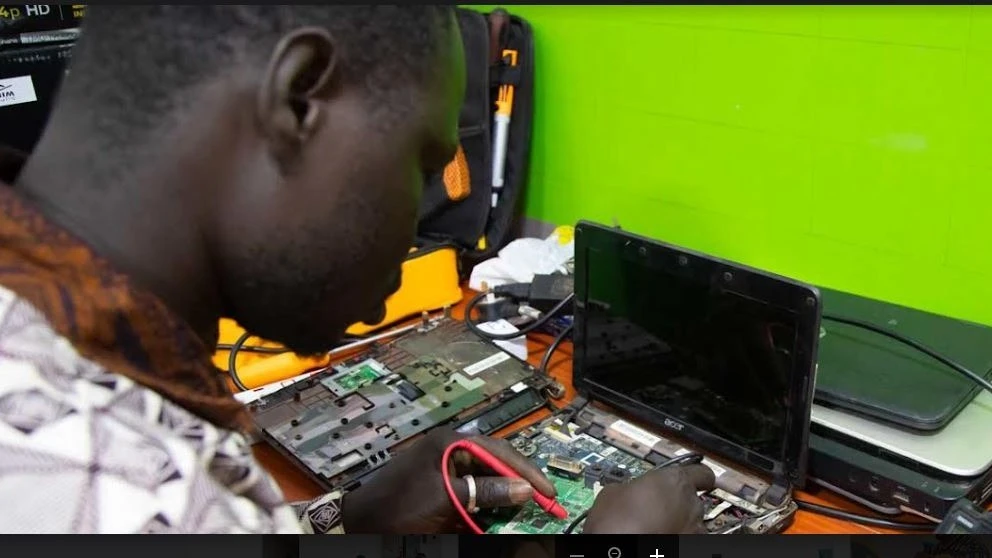World civilizations forum opens in China's Nishan

Nishan in Shandong Province is the birthplace of Chinese philosopher Confucius, whose thought has deeply influenced Chinese culture. Confucianism is thought to be one of the origins of China's Hehe culture, which means harmony and cooperation. The Ubuntu philosophy in southern Africa also advocates similar ideas. Some scholars agree that dialogues, exchanges and seeking harmony without uniformity among different civilizations are key to addressing the common challenges of the world. How do the ideas in Hehe and Ubuntu help with mankind's pursuit of a better life?
According to philosophers, not only harmony, but equality and unity are major aspects in both Hehe and Ubuntu culture. So what is the Ubuntu philosophy and Hehe culture? And in what way are they contributing to the China-Africa community with a shared future? To help us explore these two concepts and more, China Africa Talk was joined by Professor Xiang Shuchen, Professor of Philosophy at Xidian University in China. Together with Edwin Etieyibo, Professor of Philosophy at University of Witwatersrand, South Africa.
China Africa Talk:
Professor Xiang, what exactly is Hehe culture? And how has it evolved? And what does it mean? Could you give some examples of what it is?
Xiang Shuchen
The easiest way to talk about Hehe is that it's just harmony. What we mean by harmony is that it's a creative and dynamic order that puts different things into relationships. Because once in relationship, these things that are now in relationship complement and strengthen each other.
For example, when you put tomato and basil together while you're cooking, the taste is better than simply the tomato or basil on its own. So this understanding of what things work together is a kind of a creative insight into what complement each other. This is really the essence of harmony. And from a philosophical point of view, the ancient Chinese, the very basic metaphysics basis of this idea of harmony is that the ancient Chinese philosophers, they looked at nature and they saw that it’s the ability to embrace difference that leads to things flourishing. And your own nature is precisely wonderful because this is kind of coherence among diversity, and that's really the essence of harmony.
China Africa Talk:
I understand Zhejiang Province is believed to be the birthplace of Hehe culture?
Xiang Shuchen:
Yeah, it's a very ancient idea. You can see it early on in the very beginning of written Chinese philosophy. It's a very deep rooted idea in the heart of the Chinese world. You can think of harmony or Hehe on both the kind of metaphysical, but it also has sociopolitical implications. So you can think of it on a sociopolitical level, on which we can talk about bringing different people into a kind of harmonious relationship.
So one of the most famous articulations of this view is Confucius who said that in the person of virtue, great sort of cultivation, they harmonize, but they do not make themselves identical with others or the opinions of others, the actions of others. Whereas the person of less virtue, less cultivation makes themselves identical. So they just copy other people, but they do not harmonize. From that, you can see what is involved in terms of the sociopolitical dimension of harmony. There is meant to be difference, but then there's meant to be coherence among difference. And so this very famous quotation from Confucius, you can see this kind of premium that was put on having different opinions as being in harmonious society with other people.
China Africa Talk:
How's Hehe reflected in China's foreign policy? For example, the five principles of peaceful coexistence, multilateralism and stuff like that?
Professor Xiang Shuchen:
You can see that underlying the five principles of Chinese foreign policy, a very important theme is this idea of mutual flourishing, and then this is the idea of harmony. What is reflected in the foreign policy is the idea that if we work together and sort of complement each other's strength, we will create greater value. The idea of this is that if you put things into relationships, you will always create greater value. Then what is needed is kind of insightful understanding of what things will then work together and how you can complement each other. So that central idea of harmony is reflected in the foreign policy ideal.
Another aspect of Chinese foreign policy is this kind of mutual respect and non- interference. That also reflects the Hehe idea, which is that working with someone or something you can both agree on will lead to greater value than simply saying that you disagree and then you want to punish someone for behavior that you perceive to be bad. If you want to do that, even you want to change somebody's behavior, the best way to approach that is to actually work on something that you can complement each other on. And then that might lead to kind of real added value, real progress in terms of value amelioration.
China Africa Talk:
Professor Etieyibo, let's try to understand what Ubuntu is. I'm from Zimbabwe. And the term Ubuntu is a commonly used term in South Africa. What exactly is Ubuntu?
Edwin Etieyibo:
The term Ubuntu is a Zulu term, which is South African Zulu ethnic group language. But the idea Ubuntu is shared across Sub-Saharan Africa. In Zimbabwe there are expressions that are similar to the term Ubuntu, even though they don't use the exact term Ubuntu. Ubuntu captures what you might say, a world view or a philosophical idea among peoples of Sub-Saharan Africa. And the way it is expressed generally is that a person is a person, through other persons, or as the famous Kenyan philosopher John Mbiti put it, “I am because we are. We are, therefore, I am.” In a sense, Ubuntu is not just a concept as it abstractly, but an idea that permits the entire life of the African. So it's a way of life where everything revolves around the idea of persons, only existing only in the context of other persons.
And there are no persons without all that person. So I don't exist in the absence of we, or other persons. One way to actually think about this mostly is to think about it as metaphysical, but also sociopolitical because the idea simply is that people make it very interesting metaphysical claim about what sort of persons are they, what sort of beings are humans? The idea Ubuntu is that humans are only humans, only through other humans. That kind of contrast sharply with, say, the western idea of individualism, of people existing as atomistic floating beings who are independent of other beings. But the idea is that, no, that's a wrong conception of what sort of persons they are or humans they are, what sort of persons of humans they are, are simply humans that are already in a metaphysical sense, embedded in other humans.
Usually, Ubuntu supports a philosophy of communalism or communalistic philosophy. So I can't claim to be a human or a person, just because I am a biological being. But I can only really make a claim that I'm a person or so, only because other persons are in existence. So that's roughly the idea of Ubuntu. And so that leads to all kinds of social practices, economic policies, in terms of building relationship, in terms of harmonious being. Ubuntu prizes harmony because the idea is I can't really stay or exist independent of other beings.
It therefore means that my flourishing, my being, my essence, is only realizable, only in the context of harmonious relationship with others, in context of inclusiveness, in context of sharing, of hearing, of belongingness, of being with others, of not isolating oneself, the very rich sense of harmony, but one that does not prize communal existence over an individual or individualism.
China Africa Talk:
I've picked a common denominator here. That's harmony, but still seems like there’re different definitions here of what a harmony is with Hehe and Ubuntu. And still on you, Professor Etieyibo, Professor Xiang defined Hehe and how it can be defined in Confucius’ eyes. Now I want to know from you, In Confucius’ eyes, an individual cannot live without community and society. Is this the same with Ubuntu?
Edwin Etieyibo:
In one sense, it is the same in a sense, in which one might say that there's no individual, if there is no community, in one sense it is. So the idea of Confucius seems to me to be similar to the idea of Aristotle, perhaps maybe Confucius will probably have provided a deeper sense of the relationship between the individual and community. So Aristotle also talked about humans as social animals. The idea being that for Aristotle is that one cannot really live outside society as a human. That’s the idea for Aristotle.
China Africa Talk:
This is a Western perception when we talking about Aristotle?
Edwin Etieyibo:
Yes, so it is relatively individualistic. The idea being that, obviously, the individual cannot really flourish. You cannot develop your capacities and all that outside society. So I can't, for example, speak any human language if I live alone in the forest. So the capacity for language is only possible, for example, in social setting and all that for Aristotle. Confucius is also saying something similar, but what goes beyond that? To simply say where it's true society is important for humans, but it's important in a multiple sense. Ubuntu agrees with Confucius and takes the idea further and says the idea in which community is important for humans. It's not just the idea of being instrumental. Not that we without community can just flourish. For Ubuntu the deeper idea is that the individual is embedded in society, so that there is no individual if there is no society, there cannot be an I if there is no we.
China Africa Talk:
Could you give us some personal experiences, Professor Etieyibo?
Edwin Etieyibo:
I remember quite a few experiences, especially when I was in high school. I lived with one of my older sisters, that was back in Nigeria. And we were living in a three-bedroom apartment. What is quite interesting because every point, I would realize that there are close to sometimes between 10 to 15 people in the apartment, so which is quite a bit strange because it’s a three-bedroom apartment, so some people, three or four people sleep in one room. And a number of these people were really not related to us in terms of blood. So I really didn't get it, because the idea was why they put them there.
I don't really know this person...I don't know where this one was from and all that. And my sister and her husband who always insisted that they were part of us, but I think I really get what that meant and do all we can to help and make life easy for others who may not be in better sufficient as maybe we are. She would say that we have to be our brothers or sisters’ keeper and all that.
But after all this time, I got to understand what was going on when started talking about Ubuntu and talking about relationships and talking about harmony, that the idea here is that you don't sort of make a sharp separation between yourself and others to say these are others ...are individuals... I said you whether you see them as part of you, which is the idea of we, I’m an individual, but we are part of the we, right? So it's not so much about who they were. Sisters or brothers are family members. No, the idea is humans belong to one human family. They were all part of we. That's the idea of harmony. That's the idea of relationship... how you can exist through other persons. So that's the first experience.
The other one was when I was a bit younger, usually I went home, I did really grow up with mom, but so I went home now and then and usually during festive periods. When we celebrated Christmas, my mom would buy shoes and clothes for us, usually when we got new shoes and clothes, usually around Christmas time, but she would also buy for other kids, neighbors’ kids and others. I didn't get it because I was very, very young then. It was much more later that my mom kept saying about the importance of relationship, the importance of caring for others beyond material possessions and all that. For me, those are examples of Ubuntu in action, which, of course, you don't see a lot today in our modern societies.
China Africa Talk:
How would you say it has influenced international relations in the region? Here I'm referring to the African continent.
Edwin Etieyibo:
That's a fantastic question. I would say that Ubuntu hasn't really influenced international relations in the region or the African continent, as much as you should or one would like to, especially considering it's in the context of different events happening in Africa, especially in South Africa. I'm sure you probably have read of incidents of xenophobia in South Africa, and maybe a few other places in Africa is just counter to the idea of Ubuntu, of brotherhood, relationships, sisters, and all that. But we do see elements of the influence of Ubuntu in international relations on the continent.
We see sometimes in African governments, we respond to different conflicts in Africa. You see, of course they don't have as much resources as Western societies. But you see the way in which they respond to these incidents, whether it is within the South African region or West African region or East African region, the African Union would respond in a way that would suggest we cannot be fighting among ourselves. We are all part of one family. So this sort of way of thinking about Ubuntu concept, in this way of talking and representing people within the African continent.
I know that way in which we can also see some aspect of Ubuntu is influences of elements of international relations or within the continent. It’s the efforts that we have seen throughout the years in the African continent, of efforts that are geared towards pan-Africanism, which has been there for even that just immediately after independence, where a lot of the African states were talking about one Africa and one continent. It was the idea of African Union, which actually started before the European Union, was pushed by this idea of to create one African for all African people, because they are from the same sort of family. But lack of resources, and some problems from external factors have undermined various efforts to try to create a pan-African group of people in the continent and all that. So there are obviously suggestions to show that these policies of states, there are efforts to try to realize Ubuntu to at least see Ubuntu in practice, but the efforts haven't really yielded any substantial positive results.
China Africa Talk:
Professor Xiang, at a time when the world is facing multiple challenges and some of them, which have also been just highlighted by Professor Etieyibo in Africa. Also, in reference to some geopolitical tensions and trade frictions, how can the ideas of Hehe and Ubuntu be applied in pursuing the greater good for humanity?
Xiang Shuchen:
I really likes Professor Etieyibo’s idea that the individual only exists through the whole. This is very part of this kind of harmony idea as well. I would just put it like you are always internally related to your world. And that's very different from this kind of individualistic idea that you're only ever externally related. So for example, when I just sit next to you on a bus, through being internally related, I can only exist when you exist. I can only possibly flourish when everybody is flourishing. The whole world is a big pool. The water comes around to you at some point. I think that sounds like a very bunch of ideas, sounds very similar to the kind of ideas underlying harmony, this very relational understanding of persons of personhood that you exist. Essentially, you can only exist when others also flourish.
So I think that if you have this idea as a kind of world view, how does it lead to kind of greater good on a kind of geopolitical level? I think that, first of all, you realize that we are all deeply, internally related to each other. If somebody is suffering, that will ultimately lead to our own suffering. So we will have to flourish together. And I think you also have to realize that with harmony, realize that order can never be sort of eternally imposed, but really, it's a result of creativity inside a mutual understanding. So when you cooperate and try to understand other people that leads to like better relationships. And then that creates kind of more enriching relationships. And that creates a greater value, mutual value for everybody, and therefore kind of collective flourishing. We have to sort of realize that we're all interconnected, world interconnected in this very existential level, not in this kind of external sense that I trade with you or something, but it’s on a very existential level. My own existence is connected to other people.
And then there’s the fact that only when we're able to be more positively connected to other people through being able to create better relationships that we create the best possible kind of human international ordering. In Chinese, there’s this social anthropologist called Fei Xiaotong and he talked about this. What he means by harmony, he said that each appreciating its own beauty, each appreciating the beauty of others. When everybody shares each other's beauty as everybody can see things from everybody else's point of view. And then there will be this kind of grand union. In Chinese language, grand union of world under heaven. So the great order has to be a result of nobody ever getting rid of your own particularity. You appreciate your own beauty, but then I also appreciate somebody else's beauty. But that requires a kind of insight into what somebody else is thinking. There is that person situation. When everybody is able to do that, that creates a kind of order that is sustainable and mutually beneficial for all parties involved.
China Africa Talk:
I like the way you put it, kind of like getting a better understanding, also reflecting on it, even in the workplace. Here we have people from different backgrounds, different countries, different races. We work in teams. And I guess my definition at this point, when I related to work will be teamwork. It brings that sort of harmony in teamwork. And I guess everybody's practicing Hehe and Ubuntu somehow - not something that you can touch. Even when you look at Chinese dining, for example, the sharing of food, the hot pot. That's another demonstration of Ubuntu there.
Xiang Shuchen:
Yeah. I want to make that example. You mentioned hot pot, but also in China in Chinese dining, thy have the lazy Susan, the spinning table. When you spin the table, you have to like keep in mind if somebody else is still eating, they might want to get the food. Before you spin, you have to consider everybody else on the table and you take other people's kind of interest into view and that's harmony in practice. Like you said that you do it all the time like a person who has kind of social charisma is doing it constantly. It's a very pragmatic point of view from Chinese philosophy. It's nothing very kind of like super mystical idea. It's very, very pragmatic. It's based on this understanding of how human beings most excessively socialize with each other.
China Africa Talk:
Still on you professor, how many equality and unity are major aspects in both Hehe and Ubuntu culture? In what ways are they contributing to a China-Africa community with a shared future?
Xiang Shuchen:
China and Africa are different. They have their similarities and their differences. But according to this idea of harmony that I've been describing, the idea would be that they complement each other's strength. There are things that Africa needs, there are things that China needs. And then it's, like you said, teamwork, you can work together and cooperate and in a kind of respectful manner that leads to greater prosperity for both parties. That's what is hopeful. Then through this cooperation, hopefully in a way that really realizes this idea of harmony, you can really challenge the kind of neocolonial world orders and a new liberal world orders, because the world view of this kind of harmony rules really is very different to that this kind of traditional structure of international relations. So if we can do something really great with it, then it become a very beautiful thing.
China Africa Talk:
I'm gonna ask both of you this question, though, Professor Etieyibo, the Global Civilization Initiative, proposed by Chinese President Xi Jinping, calls for upholding the principles of equality, mutual learning, dialogue and inclusiveness among civilizations. Now, what are the significance of mutual learning between Ubuntu and Hehe in terms of building a community with a shared future for mankind?
Edwin Etieyibo:
These values of principle of equality, mutual learning, dialogue, and inclusiveness that the Chinese president called for, everyone would agree that they are currently lacking today in our world. I mean, there are conflicts happening, the wars, the division, the trade imbalance, the friction, to imagine a world where you have these values on that line in our relationship, in a global sphere, we will have a different world completely, right?
Part of the problem why these values are lacking, I think, has to do with the fact that there are some civilizations position themselves as superior to others. They say I am the superpower, I have nuclear weapons, I want to exterminate you and that makes relationship where some people, other countries are treated as if they are inferior. And that precisely is what Hehe and Ubuntu preaches against. The idea of Hehe and Ubuntu are aspects of relationship of harmony of communal flourishing of being together, is just the opposite of that completely. We need a world that is more inclusive, where there is mutual learning, where there is dialogue, where there is equality among all of us. And that would be a better world order that we all flourish better in, rather than this world order where we are now, where it's almost like a zero sum game. Some countries have to win at the aspects of others losing, competition, global capitalism and all of that.
China Africa Talk:
Professor Xiang, do you have anything you'd like to add on?
Xiang Shuchen:
Yeah, I really like what Professor Etieyibo was saying, I agree. I think from the harmony perspective, I would echo really the same thing that you want to create an order in which the diversity of the world leads to a kind of more enriched order, because the very idea of harmony, like if you look at the sayings about harmony in the Chinese text, they’ll say, if things are the same, they die. It's only when you put differences together that there is possibly life because that is the nature of life. If you have things that are the same to set itself same or that if you look at biological organisms, the only time in which a biological organism is the same as itself is when you're dead.
When you’re alive, you're constantly bringing the breathing in the air, exchanging with your environment. So when you're able to like exchange with the environment that you have the possibility of life. If you think about that in terms of international order, there's far more enriched order that can come out of this kind of horizontal mutual responsiveness to each other, as opposed to this kind of top down desire force. It's kind of unity or this very hierarchical, very stratified hierarchy. That's really not, from the kind of Chinese harmony point of view, it's not a rich kind of a system. It's a very impoverished in some ways.
Top Headlines
© 2024 IPPMEDIA.COM. ALL RIGHTS RESERVED






















